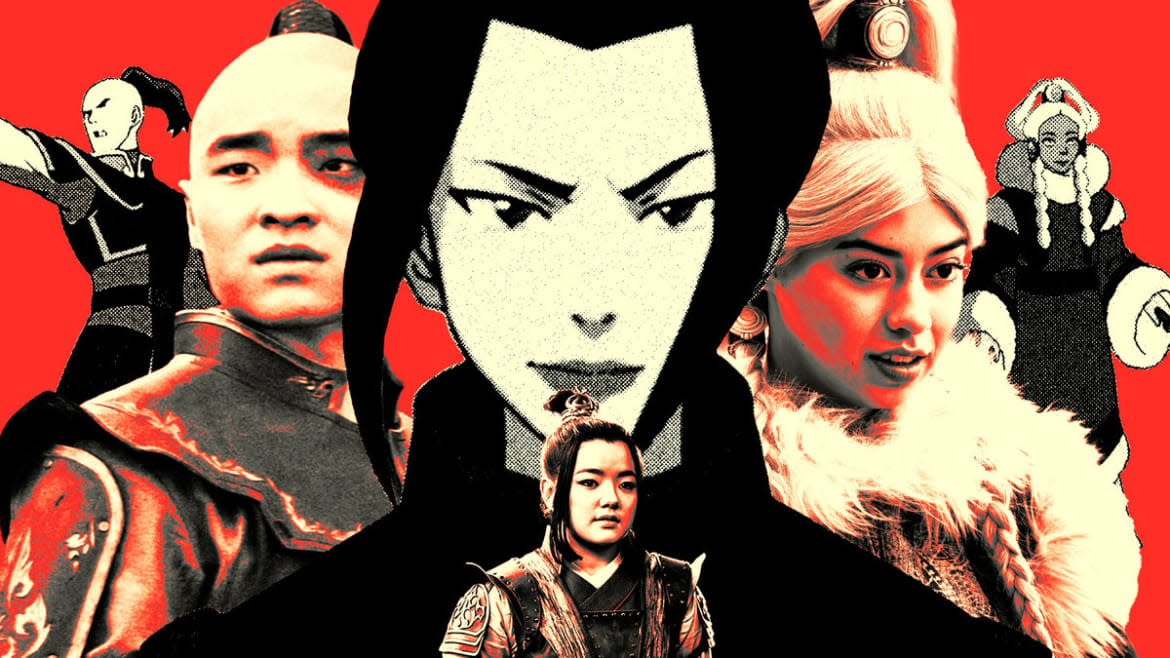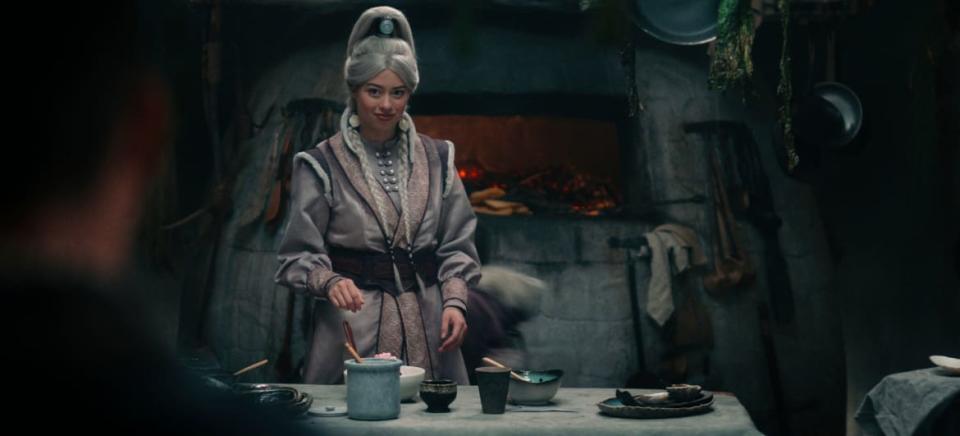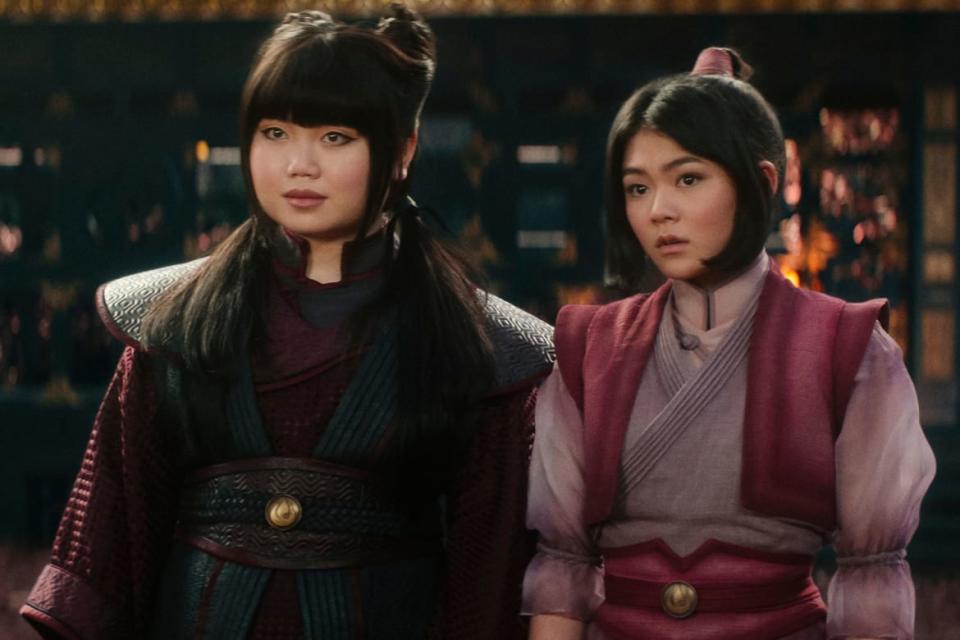‘Avatar: The Last Airbender’ Fans Wanted More Diversity. So Why Are They Still Mad?

- Oops!Something went wrong.Please try again later.
- Oops!Something went wrong.Please try again later.
- Oops!Something went wrong.Please try again later.
One of the worst offenses committed by the 2010 live-action Avatar: The Last Airbender was its whitewashing. The three leads were all played by white actors in the movie, though the original cartoon coded them as Tibetan and Inuit. Whenever Asian actors were afforded a moment of screen time, they were dark-skinned villains in the Fire Nation or unnamed East Asian background characters in the Earth Kingdom. Director M. Night Shyamalan’s attempt to map racial groups onto fictional kingdoms backfired, rendering it a microcosm of Hollywood’s typical racist casting: White actors were the protagonists, while dark-skinned actors were reduced to villains, East Asian actors never broke out of the background, and Indigenous actors didn’t appear at all.
So when Netflix announced it was producing a new live-action adaptation of the beloved Nickelodeon series, this time casting more Asian and Indigenous actors, fans reacted with a mix of hope and hesitation. Would this finally be a chance to remedy the M. Night mistakes of Avatar’s live-action past?
The Best and Worst Changes in Netflix’s Live-Action ‘Avatar’
The answer is “no.” If the memes and social media comments are any indication, fans aren’t particularly happy with the casting of Fire Nation sibs Azula and Zuko, their blade-throwing friend Mai, or the ethereal Princess Yue of the Northern Water Tribe. The gripe? They’re not hot enough.
Yes, that’s right: They’re not hot enough. And it doesn’t take much digging to discover that “hotness” is very much correlated with whiteness in this loudmouthed section of the fandom.

Amber Midthunder as Princess Yue.
One does not have to scroll far to find troll comments, like “Not my Azula,” littered across the social media pages of actress Lizzy Yu, who plays the conniving fire princess in 2024. What’s worse, the social media comments about Yu and Thalia Tran, who plays Mai, quickly devolve into fatphobic jabs centered on the roundness of the actresses’ faces. In one post with nearly 4 million views, a TikTok creator compares an AI-generated image of Azula, Mai, and Ty Lee (played by Momona Tamada in the Netflix show) with the actresses cast in the live-action series, implying that the real young women failed miserably to deliver on fan expectations.
There’s a whole other argument here about the use of AI to set unrealistic and literally inhuman, computer-generated expectations of female beauty. It’s equally ridiculous to expect human women to perfectly resemble animated characters based on anime, which is notorious for sexualizing women. The takeaway here is that although many Avatar fans wanted Asian actresses cast, they could only accept them if they conformed to white, Western beauty standards. The round faces and soft features that Yu, Tran, and many of the other actors have are common to Asian people.
You would think that after rightly clamoring for real Asian representation after the Shyamalan disaster, seeing actresses of Chinese, Vietnamese, and Japanese descent playing the iconic Fire Nation roles would be celebrated, let alone welcomed. Instead, the loudest Avatar fans—a large number of whom seem to be men—have demonstrated that they seem only to care about Asian representation when it fits a white beauty standard and can be easily fetishized.
Nowhere is this more obvious than this same contingent of the fandom’s polar-opposite treatment of Maria Zhang, the actress who plays Suki. While Avatar’s incels demand petitions to recast Yu and Tran, they’ve made Zhang, who appears in a single episode, the object of their wet dreams.
Again, you don’t have to look too hard to find fans conflating the actors’ personal attractiveness with “good casting.” Zhang also happens to fit the angular beauty standard that Yu and Tran, in some fans’ eyes, fail to: She has the wide eyes, thin nose, and sculpted jaw that the other actresses don’t.

Thalia Tran as Mai (left) and Momona Tamada as Ty Lee.
When we only celebrate Asian actors whose features are most associated with whiteness, it’s worth interrogating what kind of representation we’re actually demanding. The reaction to the casting of actors who have more features associated with whiteness shows that for some fans, Asianness on screen is only accepted when it’s mitigated by whiteness. That kind of representation means little when it isn’t inclusive of most Asians.
Get the Daily Beast's biggest scoops and scandals delivered right to your inbox. Sign up now.
Stay informed and gain unlimited access to the Daily Beast's unmatched reporting. Subscribe now.

